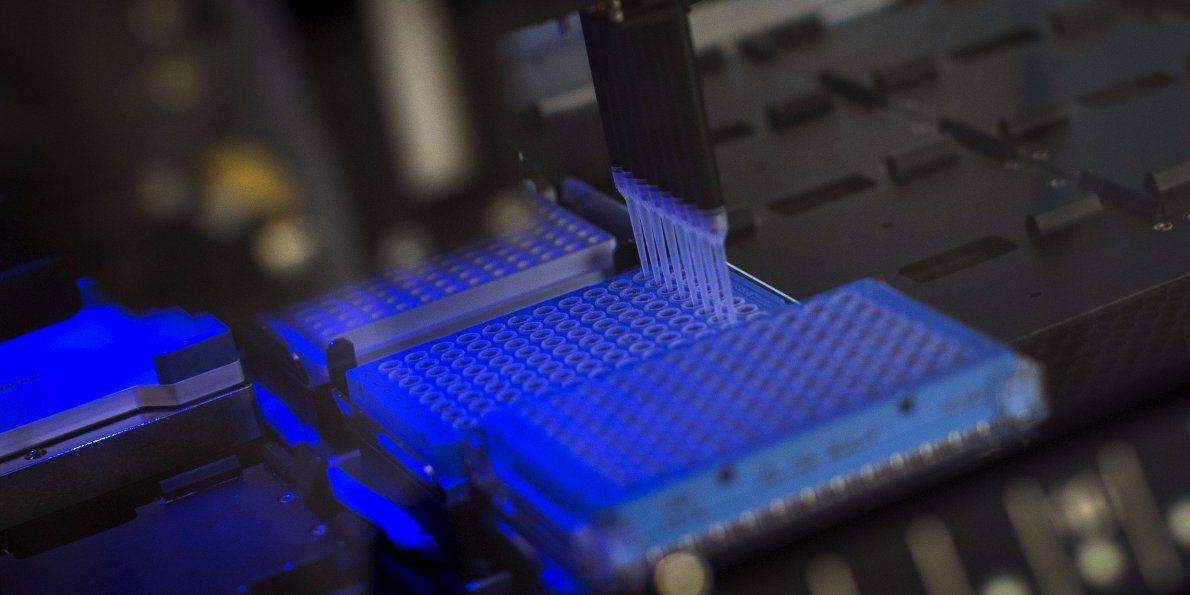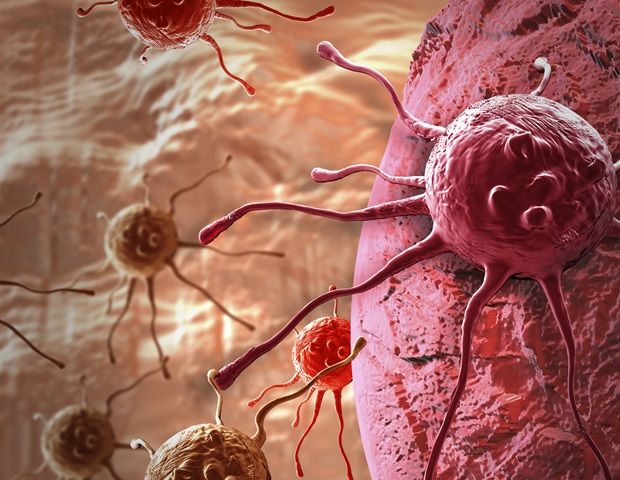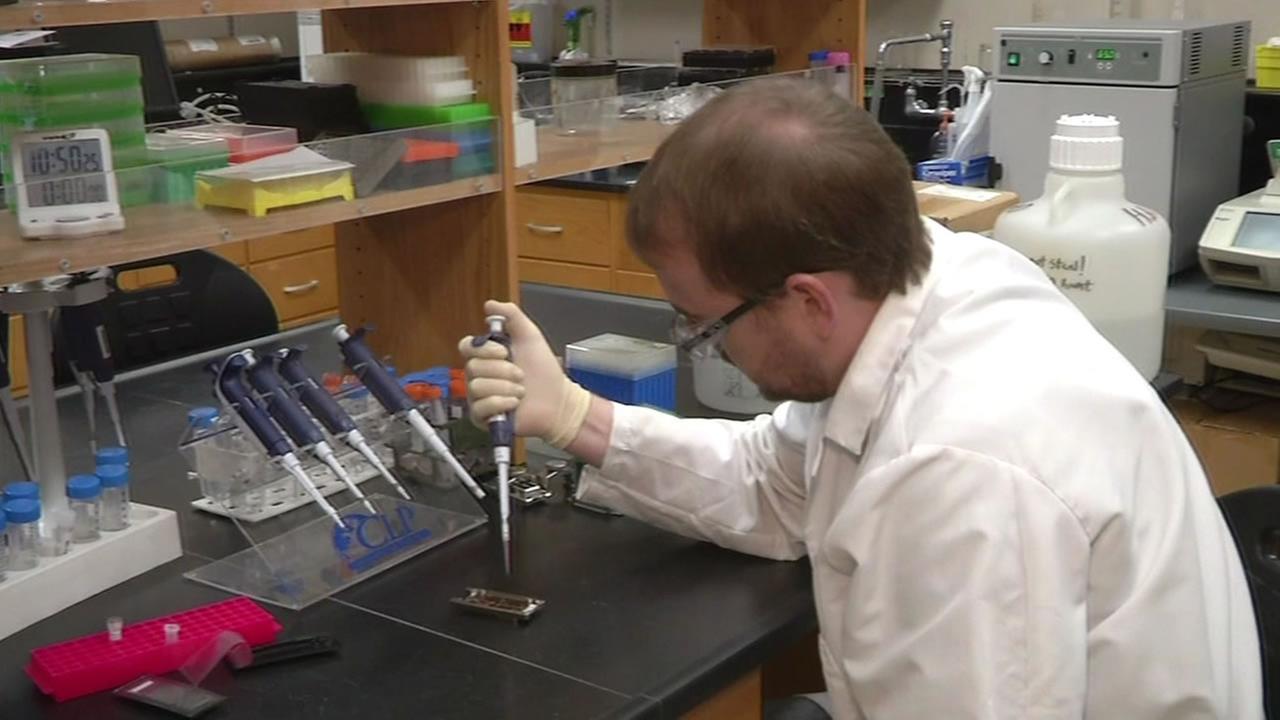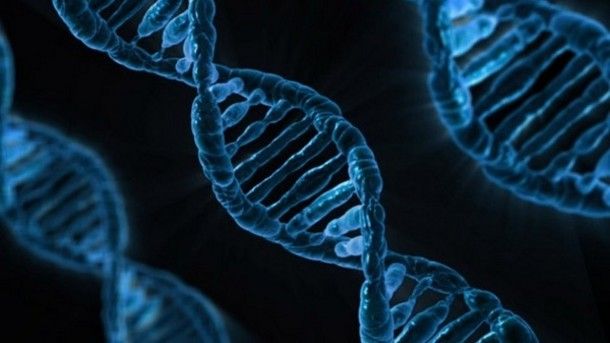Page 10803
Jun 16, 2016
Media Reports: Xinjiang Residents Must Present DNA To Obtain Passports
Posted by Karen Hurst in categories: biotech/medical, internet, policy, privacy, terrorism
Biometrics using DNA along with other recognition technology brings additional identity protection; however, is it just me or are others understanding the risk with our DNA and other bio info being online given the existing weak infrastructure and under pinning technology. Without a QC secured internet and infrastructure; I would hesitate having my bio/ DNA information online for hackers and terrorists.
Once your identity with the DNA is online; it will be extremely hard to do a reset button on your identity because things like an id number such as a US Social Security number, etc. can be changed; but DNA identity is not that achievable even with CRISPR.
The official Yili Daily reported that from the first of June, residents of the Yili Kazakh Autonomous Prefecture in China’s far northwest must present the police with DNA samples, fingerprints, voice prints and a “three-dimensional image” when applying for travel documents.
Continue reading “Media Reports: Xinjiang Residents Must Present DNA To Obtain Passports” »
Jun 16, 2016
Rolls-Royce made a stunning driverless concept car
Posted by Shailesh Prasad in categories: robotics/AI, transportation
Rolls-Royce Vision 100 concept car leaps into the future with an AI personal assistant and sofa for a backseat. Take a look.
Jun 16, 2016
Brain clutter makes older adults doubt memories
Posted by Karen Hurst in category: neuroscience
Explains a lot.
Irrelevant details make it hard for seniors to trust their recall. “That extra stuff shouldn’t be in their memories at all, but it is,” says Ashley Duarte.
Jun 16, 2016
New neck collar may protect players from brain injuries
Posted by Karen Hurst in categories: biotech/medical, neuroscience
Wearing a specifically designed compression collar around the neck may prevent or reduce the devastating effects of head collisions in sports, two new studies have found.
The neck device, called a Q-Collar, is designed to press gently on the jugular vein to slow blood outflow increasing the brain’s blood volume, according to researchers from Cincinnati Children’s Hospital Medical Centre in the US.
The resulting effect of the increased blood volume helps the brain fit tighter within the skull cavity, reducing the energy absorbed by the brain during collisions, researchers said.
Continue reading “New neck collar may protect players from brain injuries” »
Jun 16, 2016
Novel Brain Cancer Treatment Taps Into Sound Waves
Posted by Karen Hurst in categories: biotech/medical, health, neuroscience
WEDNESDAY, June 15, 2016 (HealthDay News) — Brain cancer patients might benefit from an implantable ultrasound device that appears to enhance chemotherapy treatment, a small study says.
Researchers from the Pitie-Salpetriere Hospital in Paris and other French institutions tested the experimental device on 15 patients with recurrent glioblastoma, a particularly deadly brain cancer. When the so-called SonoCloud was activated, sound waves opened the blood-brain barrier, letting in more chemotherapy, they said.
“The walls of the blood vessels in the brain are very difficult to cross for certain molecules,” said Frederic Sottilini, CEO of Paris-based CarThera, the company developing SonoCloud.
Continue reading “Novel Brain Cancer Treatment Taps Into Sound Waves” »
Jun 16, 2016
Foundation Medicine wants to find ‘software bugs’ in your genome to fight cancer
Posted by Karen Hurst in category: biotech/medical
Jun 16, 2016
New analytical technology could improve cancer treatment
Posted by Karen Hurst in categories: biotech/medical, health
Awesome!
University of Oklahoma researchers will apply a new analytical technology that could ultimately provide a powerful tool for improved treatment of cancer patients in Oklahoma and beyond. Using mass spectrometry, an analytical instrument for sensitive detection and accurate identification of molecules, the team will quantitate the amount of anti-cancer drugs present in individual cancer cells, including those in bladder cancer cells isolated from patients undergoing chemotherapy. The method will provide a means to establish ideal dosing regimens that delivers effective chemotherapeutic concentrations to patients with minimal toxicities.
Anthony Burgett and Zhibo Yang, assistant professors in the Department of Chemistry and Biochemistry in the OU College of Arts and Sciences, and affiliates of the Stephenson Cancer Center, in collaboration with Jonathan E. Heinlen, M.D., assistant professor in the Department of Urology at the OU Health Sciences Center and a Stephenson Cancer Center researcher, will fully develop the novel first-in-class mass spectrometric technology—the Single Probe—capable of performing single-cell mass spectrometry of compounds inside of living single cancer cells as a bioanalytical method to improve efficacy and toxicities of chemotherapy in patients.
Continue reading “New analytical technology could improve cancer treatment” »
Jun 16, 2016
New technology aims to keep astronauts safe from hidden threats
Posted by Karen Hurst in category: space travel
Technology invented in the Bay Area could help keep American astronauts safe from dangerous microbes on far away missions like a journey to Mars. (KGO-TV)
Jun 16, 2016
Applied DNA Sciences to grow its cosmetics, fragrances, and personal care business
Posted by Karen Hurst in categories: biotech/medical, business, food, security
I told many people that this was coming a few years ago; so glad. Wait until you see smart meds that people can never become addicted or overdose on because the smart med reads your system and knows when enough is enough.
The security solutions company uses botanical-DNA based tools to tag, track, and trace products for an array of industries. Now with the hire of a personal care supply chain management expert, the company is set to expand its engagement with the industry.
This week the Stony Brook, New York–based company announced that Barbara Brockway has accepted the role of Director of Personal Care.

















